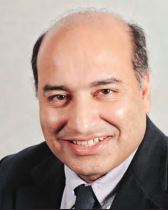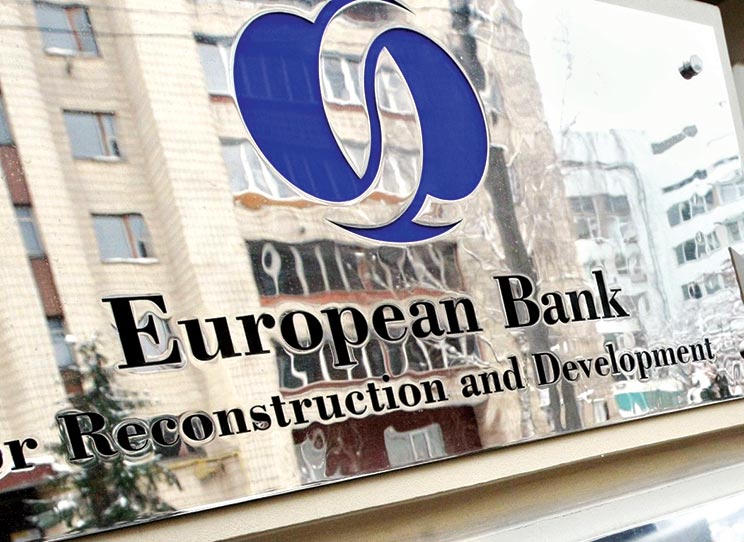Suma Chakrabarti
Biz@India
May 2018
Suma Chakrabarti, president, European Bank for Reconstruction and Development (EBRD) talks to Biz@India about the development work it has been leading in various countries, its plans of working in the Middle East and how its work ethics are starkly different from investment banks.
The economy seems to be looking good, let’s talk a bit about last year. Was it a relatively surprising good growth? Where do you see it headed this year?
I think Europe and the US are recovering very well. Obviously in the case of European bank reconstruction, we focus more on Eastern Europe and not on Western Europe. But it’s quite clear that the economies we are working in, expect very good growth in the coming year. I think one of the biggest issues is that, as growth comes back, the governments of the countries we operate in, are going to use that space in a way to reform their colonies further.
It’s always difficult to reform when you have sterility. Manageable, deficits are under control and growth is coming back, I think it’s time for many of them to try and improve their investments.
Currently, which of these countries is the most challenged according to you?
We have 37 countries under operations, so it’s difficult. On one end we have Morocco and Atlantics over to Mongolia, so it’s not really possible to compare in a way. But look at our largest market – Turkey. Turkey has been our number one market since four years in a row now. We have invested more than EUR 5 billion in the last three-four years, mostly in the private sector. The Turkish economy has been going very strong since last year on the back of the great guarantee fund of the Turkish government. We have been able to do 97 pc of our investments in the private sectors including, for example, Mahindra coming into the tractor sector in Turkey with our help, involving our finance. But as I said, in Turkey the issue now is what has been quiet a consumption net growth to too much of investment net growth in the coming year.
Our last focus in Turkey is now really looking a bit dated. We thought this year they would grow 3½ pc. I think they have grown more than that. But there is a risk of overheating. If you have had a lot of consumption net growth, if the economy turns bad in any way, then it’s risky in terms of bank lending and non-performing loans. So I think a switch to more investments is very important.
You mentioned Morocco, what’s your activity there?
I am really proud of some of the work we’ve done in energy efficiency, and renewable energy in Morocco. EBRD is the number one multinational development bank in the world for the green economy and in particular for the private sector. We have set a target that 40 pc of our investments have to be in the green economy area by the year 2020. We reached 2017 with 43 pc. So three years, and Morocco has been one of the standout countries in that respect. But Egypt, Turkey and several other countries of course, too, stand out.
India is becoming a member of EBRD, hopefully in the next twothree months. That will allow us to work with more Indian companies who want to invest in our operations, like TATA and Mahindra. We have been working with them.
Tell us a bit more about the North African region. The political instability that must have impacted your business.
No it doesn’t seem so. We are not rating North Africa for five years or so. We have a huge, nearly EUR 7 billion worth of investment already. Egypt is our number two country after Turkey and that shows the pipeline of the projects. Precipitately strong way you can have projects and investments together. So in Egypt again in a year, we are actively involved in building largest solar parks in Africa. It could become the largest solar park in the world. That wouldn’t have happened without the regulatory environment.
Policy environment makes these renewable investments successful. Till now we have sixteen projects.
That’s just an example of the work we are going on with Africa. Actually North Africa is really a coming region in terms of development and development opportunities.
Will you also be looking at actual reconstruction as an aim, let’s say in Libya, Syria, and one day in Iraq?
One day, Libya and Syria would definitely be the countries that would qualify. For that sort of work to happen, you need to do really good peace settlement. Otherwise, investors are not going to run to these countries.
But you operate in areas with very high political risks – Turkey, Egypt…
We are a development bank and if we were making money like other bankers, we would do safe things and there will be no point to be a development bank working in the private sector. We should do the things they don’t want to do.
But does that push up the cost of the capital?
No, we were actually making huge profit. Last year, we had a profit of EUR 750 million. So we are showing we can work in tough areas but if it’s profitable, and that profit is ploughed back into our lending to these countries. But I think it would be a shame if a development bank like us started doing the same things that investment banks would do anyway.
Are you after GCC?
We are active in business development with the country, so we are very keen to have Gulf investors to come with us. We’ve worked with what we call aqua power. Several of these entities have been investing with us in what we call sub Mediterranean, Middle East, North Africa and also with other countries. Lebanon has also become one of the countries of operation. So we are going to start operations there very soon. Next, Gulf entities will be interested to work with us.
How do you rate vision 2030 of Saudi Arabia?
We have not really focused on it because Saudi Arabia is not even a member of EBRD. But what is happening in terms of change in Saudi Arabia, everyone is noticing. We are excited to see these changes. I think this is for the UAE, the strategy for going forward and is very consistent with EBRD’s own values as well. So UAE is a country I would like to work with more.











